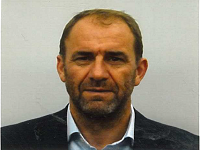Modern Slavery
Using financial data to tackle modern slavery
Nick Lewis | Head, Financial Crime Compliance, Integrated Intelligence and Investigations, Standard Chartered
August 2017
The trafficking and exploitation of human beings is a vast, complex, and highly profitable global business. According to the International Labour Organization (ILO) it generates illegal profits of $150 billion a year.
With little chance of detection, human trafficking offers the criminals involved a low risk, high reward source of revenue. At Standard Chartered we want to dramatically challenge that risk-reward calculation. We may never put human traffickers out of business - but we can make life harder and riskier for them as they go about their barbaric enterprise.
“We know that criminals will seek to exploit the financial system and the services provided by financial institutions in order to move the proceeds of their criminal activity around the world. But whenever money moves through the financial system it leaves a trail. That's their Achilles’ heel and we're determined to do everything in our power to use it against them.”
In April 2017, a practical new toolkit was launched by the European Bankers Alliance (EBA) designed to help European banks fight human trafficking using financial data. Endorsed by the Wolfsberg Group, it contains a set of so-called ‘red flags’ for human trafficking and modern slavery, ranked according to their strength as an indicator of these crimes.
Standard Chartered is proud to have played a key role in developing this toolkit with the Thomson Reuters Foundation and other banks. It is part of an ongoing effort that we hope will help change the odds against human traffickers. We will use the toolkit to raise awareness among our front-line staff, to equip them with tools to spot signs of modern slavery, and to help them to report any concerns or suspicions.
Toolkits like this one enable us to convert our data and our knowledge about how traffickers disguise their dirty money into intelligence we can use to find them. The EBA’s financial indicators are far more extensive and tailored than any developed before in Europe, and I believe they will have a significant effect in strengthening the ability of financial institutions to identify and report these crimes.
But it's not just about the data.
The EBA complements other partnerships, such as the Joint Money Laundering Intelligence Taskforce, in playing a vital role in broadening engagement across the financial sector. The toolkit will be shared on a confidential basis with other banks and with money service businesses, expert anti-trafficking NGOs and other key institutions including financial crime compliance standard-setting bodies, national Financial Intelligence Units (FIUs) and law enforcement agencies.
Breaking down the silos within and between industries and sectors is critical. Only by working together across this group to help identify money trails can we ensure that we have the full picture, and that the information is used to identify victims, investigate offenders, and interdict the dirty money.
On launching the toolkit, the CEO of the Thomson Reuters Foundation Monique Villa called modern-day slavery “a growing business”. At Standard Chartered, we can use our international footprint, and our detailed knowledge of source and transit countries to enrich the understanding of law enforcement agencies, and to truly expose the global nature of the problem. That will give us our best chance of finding the money and tracking it through the system. We want to be a leader in fighting financial crime, so we're determined to play our full part in tackling this evil business.
Further reading:
- Bank staff will "red-flag" trafficking suspects with powerful new tool by Ed Upright, Thomson Reuters Foundation News
- Bank staff will be trained to spot trafficked women under new anti-slavery scheme by Martin Bentham, Evening Standard
Tags
